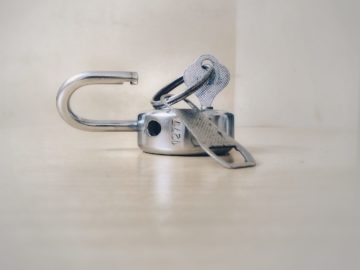
So maybe you’ve been able to forgive those who’ve hurt you. If so, you probably noticed a release, a sense of relief, a feeling of freedom because you let go of the power that pain had over you. Well, what if you’re the one who made that decision that caused pain to someone else or yourself?
Regret, shame, and guilt prevent us from letting go of our past mistakes. Rather than reflecting on the experience and learning from it so that we can move forward, we tend to dwell on what we’ve done, keeping us firmly rooted to the experience and the pain. What’s even worse is that there’s not one good thing that comes of that.
Now, any conscious transgression, where you deliberately made a choice that would hurt someone needs cleaning up. That clean up may involve a sincere apology where you take complete responsibility and commit to never saying or doing something again. Of course, when it comes to a bigger transgression like betrayal, an apology is a good start but it’s going to take more than that to rebuild the heart and trust that was shattered.
So, let’s assume that you’re doing all you can to make it right by taking full responsibility, apologizing, showing remorse, empathy and demonstrating that you’ve learned from it and it will never happen again. From this place, the person you hurt can decide if it’s worth it to them or not to believe you, and believe in you again.
While they’re working on their decision, as you continue to act with honesty and integrity, it’s also time to start working on you.
Your work involves healing anything that led to choices you regret because without understanding what caused the actions you’re now regretting, you’re likely to do it again. Heal what caused it by getting to the root of it. Maybe you never learned empathy, maybe it stems from a past trauma. It’s not an excuse for the behavior but a starting place to what needs healing.
As you’re healing what led to your decisions in the first place, it’s important to eventually move towards self-forgiveness. Why?
By refusing to forgive ourselves, we remain trapped in the past.
The good news is that there are some simple strategies that can help you come to terms with the things that you have done in the past, learn from them, and embrace a future that’s filled with honesty, integrity and deeper relationships as a result.
Try these strategies to help you forgive yourself and move forward:
- Be honest with yourself and others about your error and hold yourself accountable. Reflect on the mistake that you’ve been unable to get over. Clearly identify what you did or didn’t do, and own up to it instead of trying to justify your actions.
- Being honest with yourself and stating where you went wrong is the first step to releasing the pain, guilt, and shame that you feel.
- Examine the events and circumstances that led to your mistake and be honest about how you felt then and are feeling now.
- Consider how your mistake impacted others physically, mentally and emotionally.
- Talk about your slip-up with someone you trust and who is highly skilled in helping you in this area. Seek their opinion, feedback, and guidance about the severity of your error. It’s likely that they’ll see your mistake in a more forgiving light than you do.
- Try to remedy the situation and make amends. Consider what you could have done differently to prevent your misstep, and develop a plan to act differently if you face a similar situation in the future. This can help you forgive yourself.
- Even if it has been a long time since the situation occurred, if the result of your decisions caused harm to others, consider offering an apology and asking for forgiveness. This action alone can be very healing for both you and the person that suffered harm as a result of your mistake.
- If you’re unable to make amends with those who were directly affected, consider doing good deeds and acts of kindness to show to yourself and others that you truly regret your actions.
- If your poor decision resulted in a monetary loss, seek to make restitution.
- Share your story with others so that they might be able to avoid making the same error.
- Realize that you’ve grown and you’re no longer the same person that made the original mistake. Continue to seek ways to help others and avoid actions that might lead to a similar lapse of judgment in the future.
All of us make mistakes, and sometimes they come with serious and grave consequences. Regardless of how serious our errors might have been, all of us deserve forgiveness. Seizing the opportunity to truly change and make amends will help everyone involved heal, including you.
Dr. Debi
Founder and CEO, The PBT (Post Betrayal Transformation) Institute
